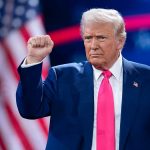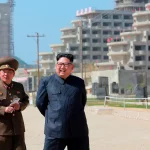Russia-DPRK relations are often overshadowed by Pyongyang’s ties with China, but the relationship between Moscow and Pyongyang is long-standing and, at times, surprisingly resilient. While not always at the forefront of geopolitics, Russia has played an essential role in shaping North Korea’s past and present.
North Korea was essentially born from the Soviet Union. In 1945, Soviet forces liberated the northern half of Korea from Japanese occupation, laying the groundwork for the establishment of the Democratic People’s Republic of Korea (DPRK) in 1948. Kim Il Sung, the country’s first leader, was chosen and backed by the Soviets, who provided crucial military and economic support to the fledgling communist state.
During the Korean War (1950-1953), the Soviet Union was one of North Korea’s key backers, supplying weapons, aircraft, and advisors. However, unlike China, which sent hundreds of thousands of troops, Moscow maintained a degree of distance, preferring to support Pyongyang from the sidelines rather than through direct intervention. This set the tone for future relations—pragmatic, but not overly involved.
Click to read about Mao Anying.
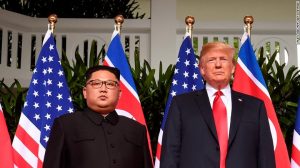
Neutrality in the Sino-Soviet Split in Soviet – North Korea Relations
One of the most fascinating aspects of North Korea’s foreign policy during the Cold War was its ability to stay neutral in the Sino-Soviet split. As tensions between Beijing and Moscow escalated in the 1960s, Kim Il Sung masterfully played both sides, extracting aid and support from both the USSR and China while refusing to take a definitive stance. This balancing act was crucial for North Korea’s survival, ensuring it did not become overly dependent on either power.
Despite periods of tension—such as when the Soviet Union leaned towards improved relations with South Korea in the 1980s—Moscow continued to provide economic and military aid to North Korea. However, with the fall of the Soviet Union in 1991, relations took a significant downturn. The newly formed Russian Federation, led by Boris Yeltsin, had little interest in supporting the isolated regime, and economic assistance was cut off. North Korea’s economy, already struggling, plunged into crisis, leading to the Arduous March.
A Renewed Partnership – Russia-DPRK Relations
Relations between Russia and North Korea began to improve under Vladimir Putin in the early 2000s. Russia’s more assertive foreign policy and willingness to challenge Western influence aligned with North Korea’s own resistance to U.S. and international pressure. The two countries resumed economic cooperation, and North Korea once again became an important geopolitical partner for Moscow.
In recent years, high-profile visits have signaled the strengthening of ties. Kim Jong Un visited Russia in 2019, meeting with Putin in Vladivostok. This was his first major summit with another world leader after the failure of the Hanoi talks with then-U.S. President Donald Trump. The meeting reinforced the idea that Russia remains a valuable ally for North Korea, particularly in terms of diplomatic backing at the United Nations.
Similarly, Russian officials have made visits to Pyongyang, and the two countries continue to cooperate in various sectors, including trade, education, and cultural exchanges.
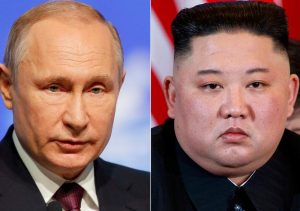
Contemporary Relations: Closer Than Ever?
In the wake of increased Western sanctions on both Russia and North Korea, economic ties between the two nations have grown stronger. Ironically, the very sanctions meant to isolate them have driven them closer together. With fewer trading partners available, North Korea has turned to Russia for supplies, including fuel and food, while Russia has looked to North Korea for labor and industrial cooperation.
One area where this relationship is particularly visible is in tourism. Russian tourists are now one of the most important sources of foreign visitors to North Korea. With Western tourism effectively blocked due to sanctions and geopolitical tensions, Russia has filled the gap. North Korea’s Kalma Resort, a massive beachside development, is widely believed to be targeted primarily at Russian visitors. While the resort remains largely empty due to North Korea’s prolonged border closures, it is expected to play a significant role in future tourism efforts.
Beyond tourism, there are also reports of Russian investment in North Korean infrastructure and energy projects, although the full extent of this remains unclear.
Click to read about North Korean and Indian Relations.
Military and Strategic Cooperation – Russia-North Korea Relations
While Russia has officially denied direct military assistance to North Korea, recent reports suggest an increased level of cooperation. The presence of North Korean laborers in Russian-controlled territories, particularly in areas affected by the Ukraine conflict, has led to speculation that Pyongyang is quietly supporting Moscow’s war effort in exchange for economic and diplomatic backing. However, both governments remain tight-lipped about such matters.
At the same time, trilateral relations between Russia, North Korea, and China are arguably at an all-time high. With all three nations facing pressure from the West, they have found common ground in resisting sanctions and promoting a multipolar world order. Joint diplomatic efforts, economic exchanges, and military cooperation have all increased in recent years, painting a picture of a strengthened alliance.
Click to read about North Korean foreign relations.
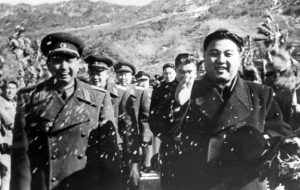
The Future of Russia-North Korea Relations
Despite periods of uncertainty, Russia and North Korea have managed to maintain a relationship based on pragmatism and mutual benefit. While they are unlikely to become formal allies in the traditional sense, their shared geopolitical interests ensure continued cooperation.
As North Korea reopens to the world post-pandemic, Russian investment and tourism are expected to play an even bigger role in its economy. Whether this growing partnership will lead to deeper military cooperation or simply remain an economic and diplomatic relationship remains to be seen. One thing is clear: Russia-North Korea relations are more significant today than they have been in decades, and they are likely to remain an important factor in the region’s geopolitical landscape for years to come.
Click to check our Russian and North Korea Tours.



